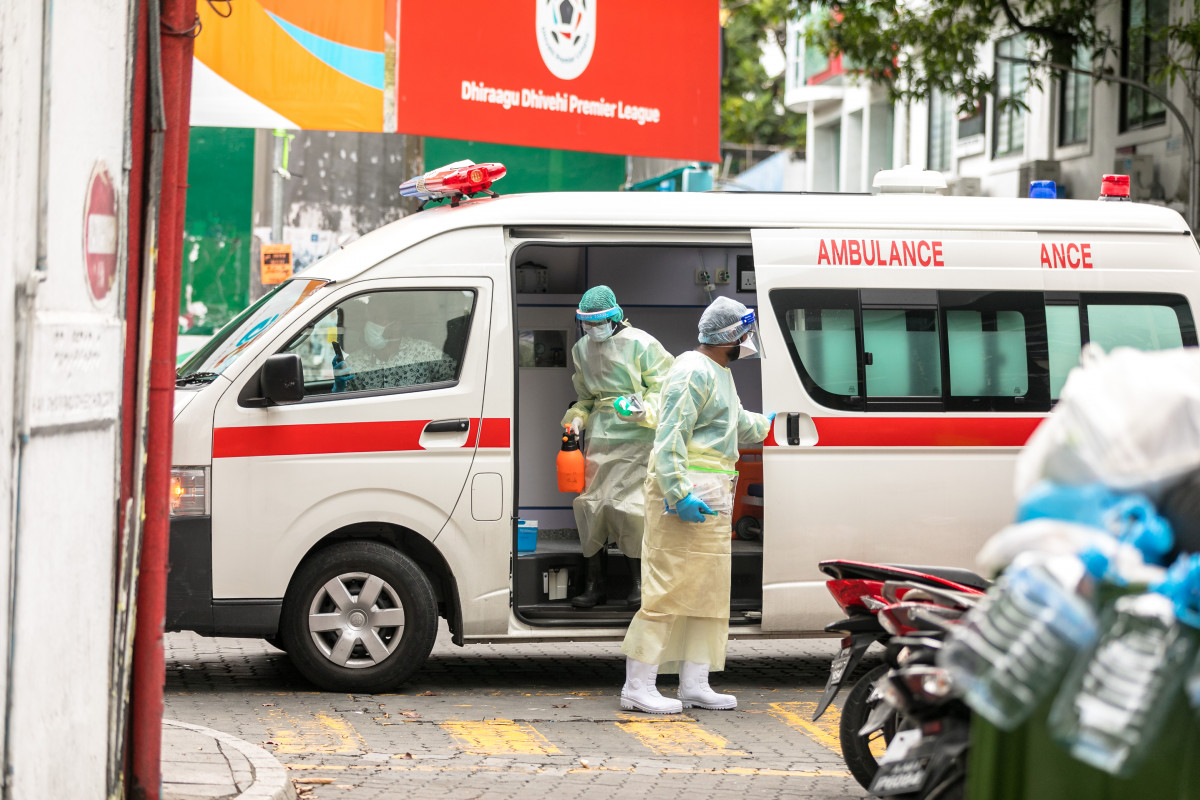Male’, Maldives – Ministry of Health on June 4, Friday, publicized the case review for 10-year-old Mariyam Mishka Mohamed, the youngest COVID-19 victim in Maldives.
The case review was triggered after Mishka’s family claimed that the authorities were negligent in attending to their daughter’s case.
Findings from the review flagged multiple instances of negligence and failure to attend to the situation, starting from when she tested positive.
As per the information publicized, a sample was collected from Mishka after she began exhibiting symptoms on May 29. The following day, her family was informed she tested positive. The contact tracing team then inquired whether they wanted a doctors consultation for her. Although her family requested one, records show that no consultations were provided, nor was the information updated to the ‘Outbreak (OB) system, as required.
Additionally, for children under 15 years of age, Care Cluster is mandated to do a daily call inquiring about their condition, but no such call was made to Mishka’s parents.
On May 31, the parents made the first call to Health Protection Agency’s (HPA) call centre at 1420hrs, informing them that Mishka had developed a high fever and cough. They also said that she was not able to eat well and was feeling fatigued.
A doctor from DMRT called at 1553hrs, provided a general consultation, and advised to continue with the medication they were already giving her at home. Family was asked to call if her condition deteriorates any further.
According to the records, the next call was made at 2106hrs, when Mishka’s family informed that her condition had worsened and that was indicating that she was having breathing difficulties. They requested a consultation urgently.
Following this call, a doctor from DMRT attempted to contact the parents at 2153hrs but failed to do so. Although they were unable to contact, the case was signed off as “attended” on the information sheet.
Seeing that they missed the call, the parents then called back at 2206 hours to the call centre and stated that Mishka was in respiratory distress. Within minutes, the information was updated to the system.
At 2233 hrs, the doctor called and inquired about her condition. The family gave detailed information about Mishka including that she is a COVID-19 positive patient and that she was having breathing difficulties for a day, dry cough for two days and six days of fever. They further explained that she was a special needs child who does have trouble communicating her condition but does not have any underlying medical conditions nor was she on any long term medication.
As per protocol, this information was updated to the system and also provided to the two clusters, DMRT and CMAT, that are responsible for activating the ambulances.
However, since no ambulance was sent, the family contacted the call centre five more times between 2316 to 2333hrs. During one of these calls, the family informed that Mishka lost consciousness and was bleeding from her nose.
Although the parents were assured that an ambulance was on the way by the call centre, records indicate that it was never activated.
Finally, due to the extreme delays, the family send someone on their behalf to Dharubaaruge at 2327hrs, where HEOC is based, and informed of the situation.
HEOC’s Facility Management Cluster requested EMS at 2332 to activate an ambulance and called the parents at 2333, and informed them that one was on the way.
Five minutes after this call, the ambulance arrived at the house, but by then Mishka was unresponsive. She was immediately given CPR as per the report and was taken to IGMH at 2342 hrs.
After multiple failed attempts at resuscitation, she was declared dead at 0010hrs.
The report noted that appropriate urgency was not given to the situation and it took 2 hours and 26 minutes for the ambulance system to be triggered. Moreover, the seriousness of the patient’s condition and the extent of assistance required by the family was not identified by the call centre, although multiple calls were made.
In addition to the timeline of events and findings, the report also listed changes being brought to the system in order to prevent such a tragic incident from repeating.
These steps include closely monitoring the calls, appropriately categorizing calls to identify levels of emergencies, decreasing the number of coordination points in the process when dealing with an emergency.
The healthcare system, HEOC, Health Ministry and all the relevant authorities faced harsh criticism after the family revealed the delays they faced in getting help.
Notably, though the family claimed when reached out for assistance, IGMH stated that they were unable to transport a COVID positive patient, this detail was not addressed in the report.
Speaking to the press soon after Mishka’s tragic death, Minister of Heath Ahmed Naseem assured that action will be taken following the publicizing of the reports findings.





